Famous popiah and Peranakan kueh chang shops are latest additions to NHB’s heritage galleries
Sign up now: Get ST's newsletters delivered to your inbox
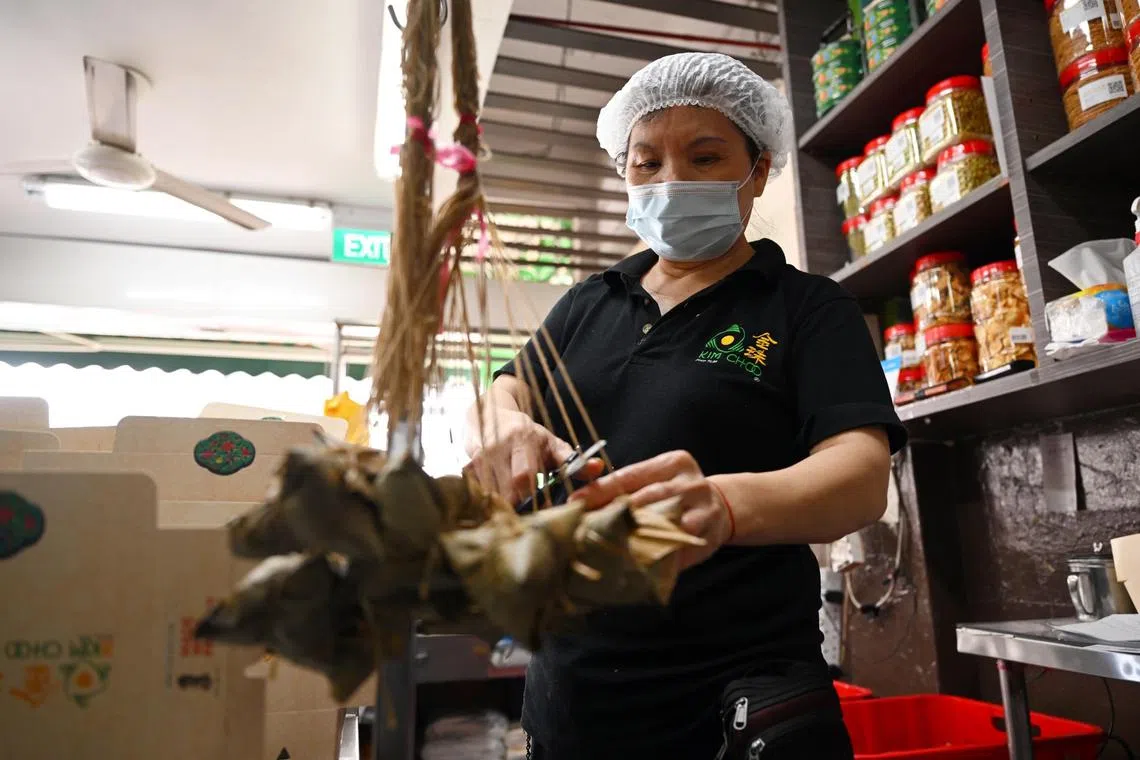
Kim Choo Kueh Chang is one of six heritage businesses featured in NHB’s Street Corner Heritage Galleries scheme.
ST PHOTO: AZMI ATHNI
Follow topic:
SINGAPORE - Back in 1945, Madam Lee Kim Choo began selling Peranakan kueh chang (rice dumplings) and kuehs in a makeshift stall at the junction of Joo Chiat Place and Everitt Road.
After World War II, she relocated her business – known as Kim Choo Kueh Chang – to a shophouse at 60 Joo Chiat Place where her daughter-in-law, Madam Helen Lim, took over the business in the early 2000s.
Much to her mother-in-law’s scepticism, Madam Lim brought in new innovations and recipes to boost sales. It was her idea to introduce bite-size rice dumplings and dumplings with mock meat and chicken filling to overcome challenges faced during the swine and bird flu crisis in the early 2000s.
Today, Kim Choo Kueh Chang continues to sell Madam Lee’s renowned home-made rice dumplings, using the recipe she created in 1945, among many other Peranakan snacks.
The business is run by Madam Lim’s son, Mr Edmond Wong, in the same shophouse, along with his two older brothers. They have another outlet in East Coast Road.
The shop now has a “mini museum” showcasing artefacts from its earlier years, as part of an initiative by the National Heritage Board (NHB) to document the heritage of businesses in Singapore.
These artefacts include a coin that was placed in a rice steamer and used as a makeshift alarm, as well as a pair of sandals worn by Madam Lee, which is adorned with Peranakan motifs that symbolise love and harmony.
Kim Choo Kueh Chang is one of six heritage businesses featured in NHB’s Street Corner Heritage Galleries scheme held in the Katong-Joo Chiat precinct that was launched on Jan 18.
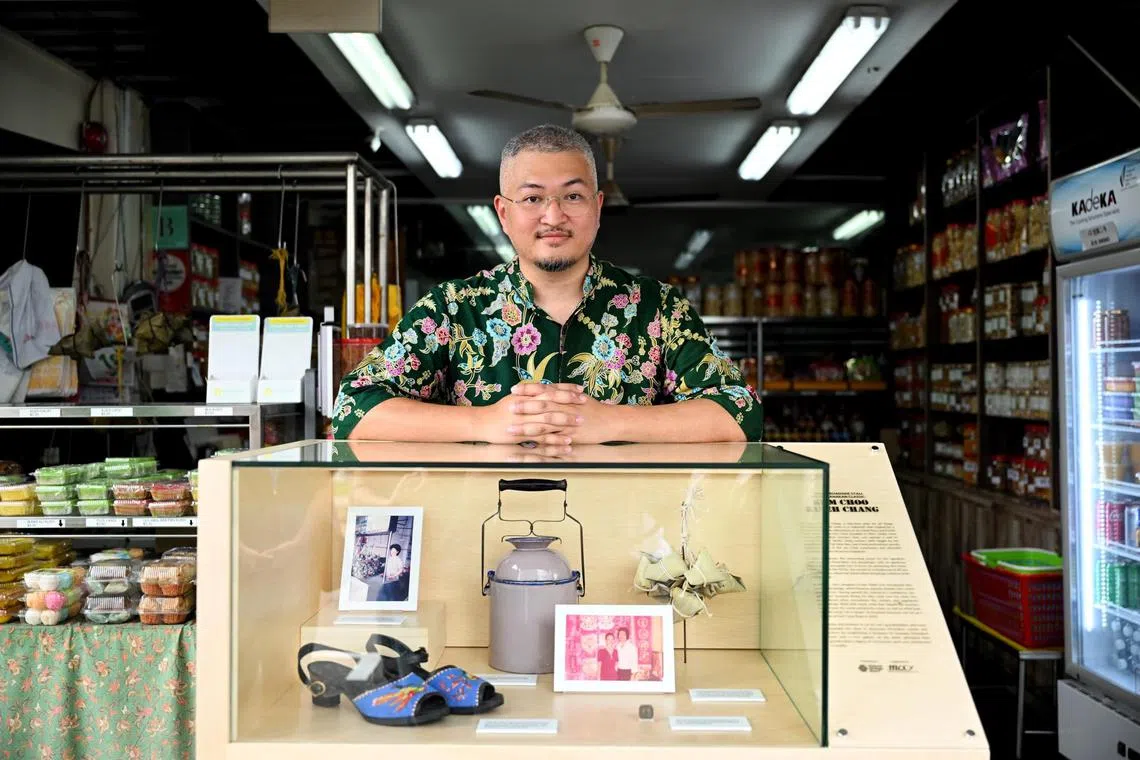
Mr Edmond Wong is the third-generation owner of Kim Choo Kueh Chang.
ST PHOTO: AZMI ATHNI
This is the fifth edition of the scheme, with other heritage businesses in locations such as Chinatown and Kampong Glam featured in a pilot over the past four years.
NHB partners closely with businesses that have over 30 years of history to co-create “mini museums” in their shops to display heritage items.
It also works with them to develop programmes that complement the showcases, and provides opportunities for them to participate in events such as guided trails and workshops to increase awareness of their businesses.
Mr Gerald Wee, NHB’s director of education and community outreach, said the success of the pilot and positive feedback from businesses that were previously featured spurred them to expand the scheme, with hopes that more heritage businesses can benefit from greater public awareness and support.
Mr Wong, 41, who joined his brothers in running the business in 2009, said they feel a sense of responsibility and belonging towards the business and the family.
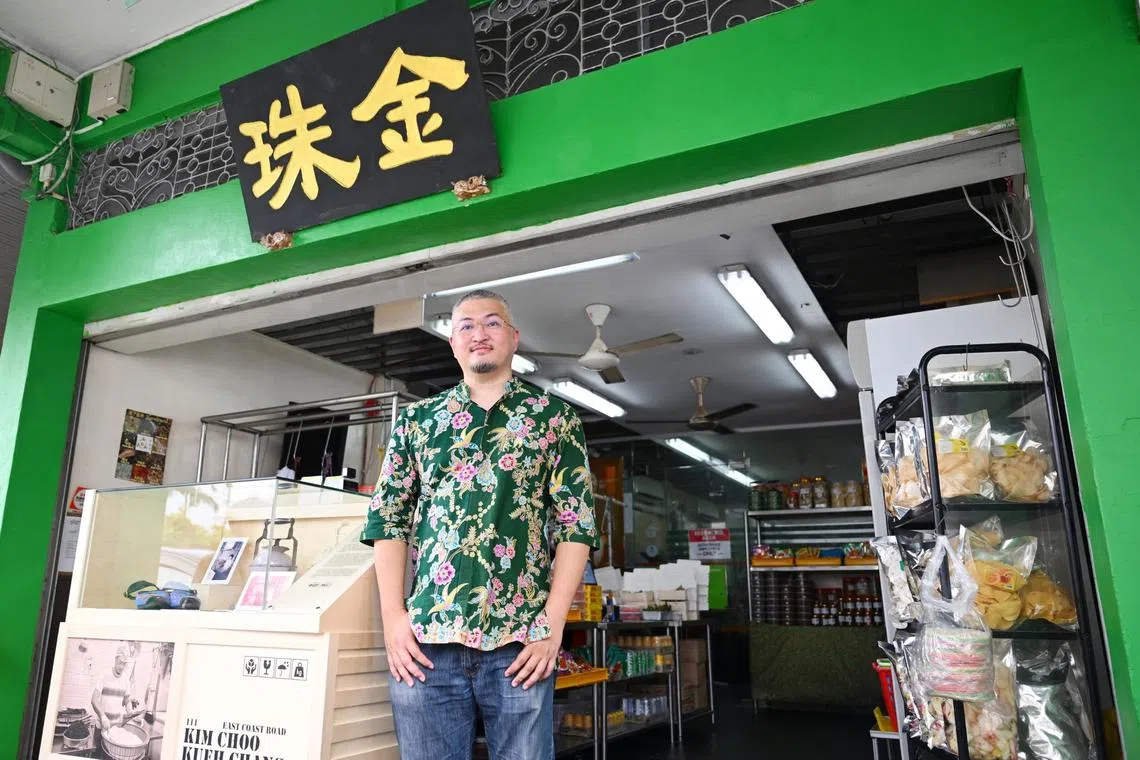
Mr Wong joined his brothers in running the business in 2009.
ST PHOTO: AZMI ATHNI
“We’ve shared memories not only with our family, but also with many Singaporeans who enjoy our delicacies. We realised that it’s important to continue this business, to keep it going, and to ensure that this can continue on for many more generations to come,” said Mr Wong.
“It is important for Singaporeans to understand that as a young nation, we have a large history and heritage that gives us our identity. We want to promote the essence of what it is like to be Peranakan.”
Another business featured in the scheme is Kway Guan Huat Joo Chiat Popiah, one of Singapore’s oldest popiah and kueh pie tee-makers.
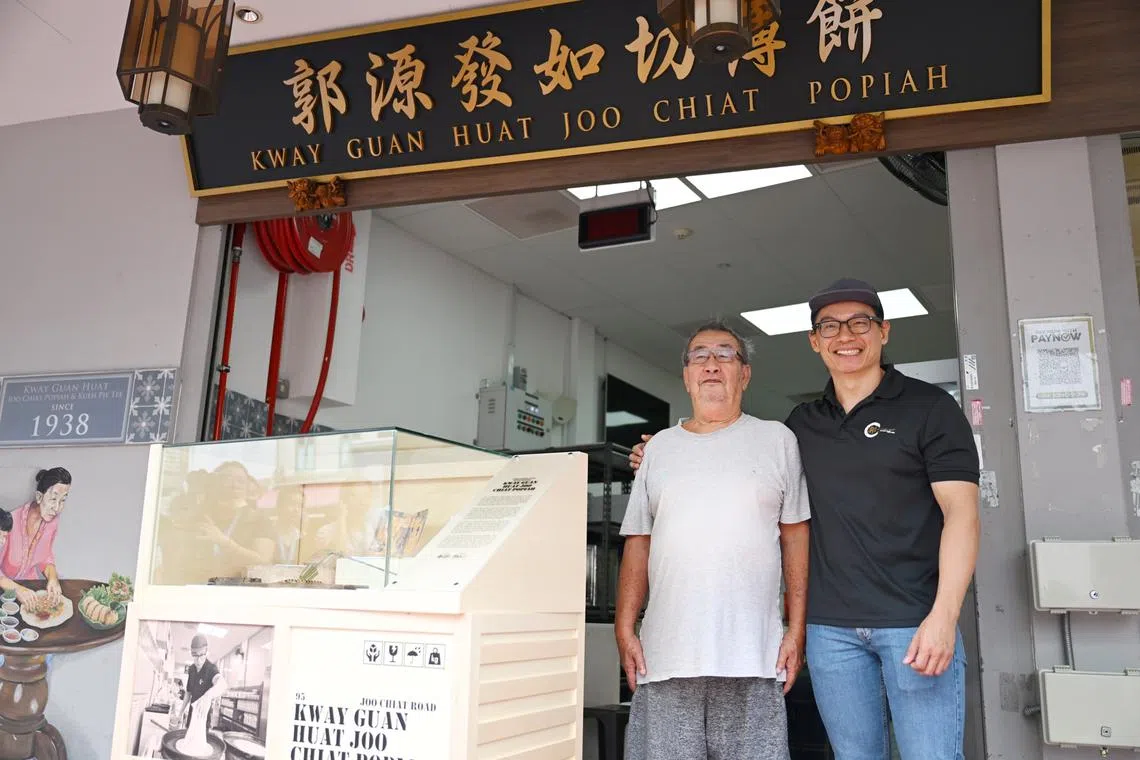
Mr Michael Ker (right), third-generation owner of Kway Guan Huat Joo Chiat Popiah, with his father, Mr Ker Cheng Lye.
ST PHOTO: AZMI ATHNI
Located at 95 Joo Chiat Road since it was founded by the late Quek Tren Wen in 1938, the shop takes pride in its handmade popiah skin and fillings. Mr Quek died in 2001.
Artefacts on display include a heating coil used by Mr Quek while preparing popiah skins, which acted as a stove.
Third-generation owner Michael Ker, 47, gave up his previous profession as a pharmacist and took over the business in 2012. He used various methods to promote the business, creating an online presence for the store and catering services for hotels.
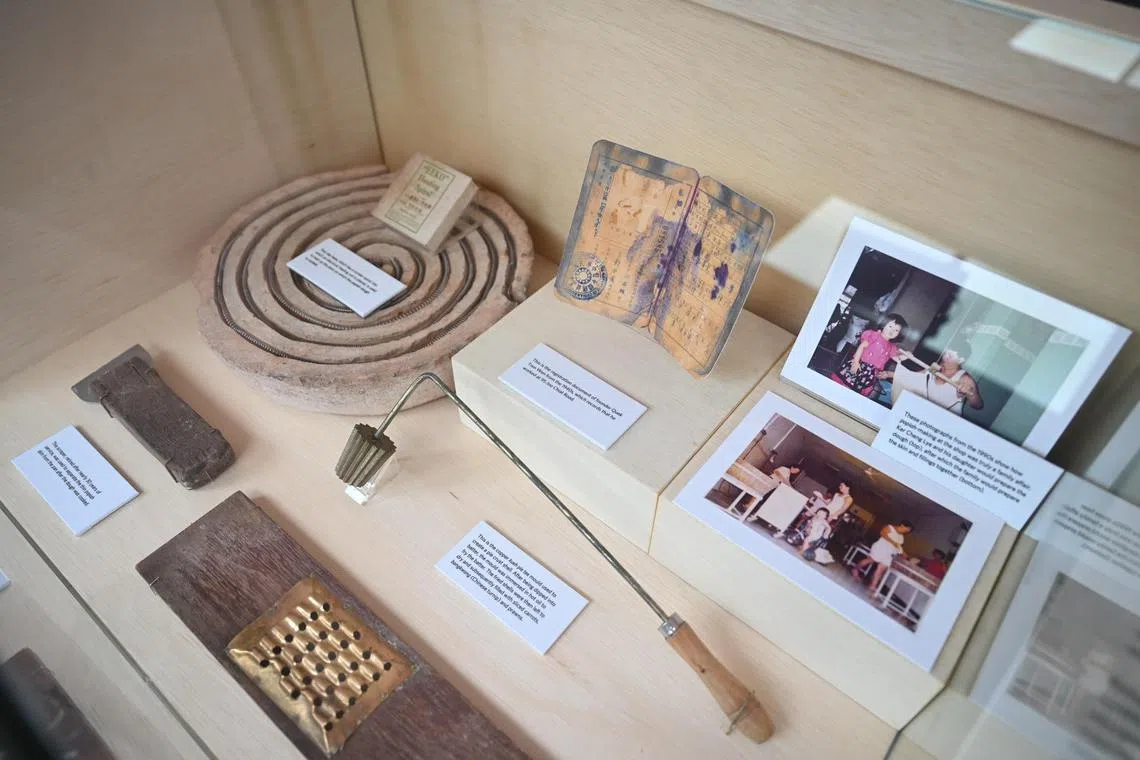
Artefacts on display include a heating coil used by the late Mr Quek Tren Wen to prepare popiah skins, which acted as a stove.
ST PHOTO: AZMI ATHNI
Yet, he chooses to pay homage to his roots and the traditional essence of the business, retaining recipes and cooking methods.
“While it is important to keep up with the times, we have to remember our beginnings and traditions,” he added.
Other businesses that are part of the NHB initiative include Peranakan restaurant Guan Hoe Soon Restaurant, Joo Chiat Fei Fei Wanton Noodle House, Sin Heng Claypot Bak Koot Teh and D’Bun.

